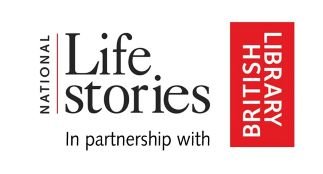
Dorren Harrison
Dorren Harrison was born in London (UK) to parents of Goan heritage
Part of the external The British Library oral history collection
About
Dorren Harrison was born in London (UK), to parents of Goan heritage. Her mother was born and grew up in Tanganyika (Tanzania). Growing up in the UK, Dorren experienced racism herself.
Dorren Harrison was interviewed in 2012 by Selma Carvalho for 'Oral Histories of British Goans from Colonial East Africa'. Between 2011 and 2014 the Goan Association UK co-ordinated a project to record oral histories of the Goan Community living in the United Kingdom. This project was funded by the National Lottery Heritage Fund and was managed by Selma Carvalho. Carvalho published a book based on the interviews titled A Railway Runs Through: Goans of British East Africa, 1865–1980 (Matador, 2014). The full interviews are archived at the British Library under collection reference number C1557. Dorren Harrison's interview is British Library reference C1557/31, © The Goan Association.
Listen to Dorren talking about stories of her mother’s early years in Tanzania and coming to the UK.
Interview conducted by Selma Carvalho, 2012.
DH: We didn't know here in this country, but it kind of gave us this colour, this sense of exoticness and this life that they had out there.
SC: Now, she grew up there, she studied there?
DH: She grew up there and she did study there, yes. Yes.
SC: And how did she meet your father?
DH: She met my father when they had to leave Africa during the troubles, and just before the independence when there were a lot of fellow Goans that had to leave Africa. And my mother met my father in London.
SC: So, when she left Tanganyika, she...
DH: Yes.
SC: Arrived in London?
DH: Yes, that’s right.
SC: Did your grandfather come with her as well?
DH: Yes. Yes, he did.
SC: Okay.
DH: Plus my two other aunts as well.
SC: Do you know the exact reasons why they left?
DH: They left because my grandfather...my grandmother had passed away, and so my grandfather was bringing up three young girls. And during the troubles, he could see what was going on, but also from family advice, it wasn't safe really for young girls to be there, really, particularly with the troubles. And I think it was the fear as well, they did not know what was going on. And I think with that as well, he felt for protection and he felt it must be the right thing to do to leave, really.
SC: Did your mother tell you stories of that time?
DH: She did, when they had to leave and coming to London. And I think they stayed in the Paddington area initially. And it was a very strange land for them, particularly growing up in Africa where it was very warm and carefree, coming to London, and this idea of paraffin heaters and this strange sort of idea of shopping. And I remember Mum telling us going to Oxford Street, and it was a totally different Oxford Street to how it is now, where you would have things over at the counter and you would have to ask for things. And Mum told us how the British reacted to seeing Asians, really, because I think at that time, there wasn't that many of them. And my aunt was very young when she came over, I would say sort of, I don't know, 14, 15. And my mum was saying that British people obviously not seeing Asians, my mum would say that they went out somewhere and somebody had given them a sixpence to...and put it in my aunt's hand because it was a sort of a token of connection, really. And it was that sort of spirit where they were sort of very welcomed but at the same time a novelty. So, yes. Little things like that.
SC: And this would have been approximately which year? Do you know? Was it the '60s or the '70s?
DH: I would say sort of late '50s...
SC: Right.
DH: Early '60s, yes. Yeah.
SC: Okay.
Listen to Dorren talking about her own experiences of racism in the UK. Please note this clip contains racial slurs.
DH: Yes.
SC: Have you, growing up, or even now, experienced racism?
DH: Yes.
SC: When you’ve...
DH: Yeah, absolutely. Yeah. I remember where we live, I...we always lived in the Wandsworth area. So, I was born in Wimbledon, but we've lived in the same area of south-west London for about thirty-five years and...or forty years. Thinking about my dad, he must have been there quite a long time, actually, fifty years, fifty-five years with this part of London. And where we live, just on the next road, I remember an English boy standing there, I must have been in my teens, but the thought of it just brings it all back again, and being called Paki and...or Paki go home. I can't remember his words. But it didn't mean anything to me, because I'm not a Paki, but you're all sort of tarnished with the same brush really, regardless of who you are, and their sort of make up of...because I'm not a Paki, I'm from India and I've got this East African connection plus Indian connection. But it just came out of the blue, because I was just walking down the road and having this reaction, nobody else on the street, and just feeling really upset, really upset that this happened sort of near my doorstep really, and how do you deal with it?
For all permissions requests for audio and video clips and their transcriptions from external collections, please contact the original project or organization.
Entry credit
Laura Owen
